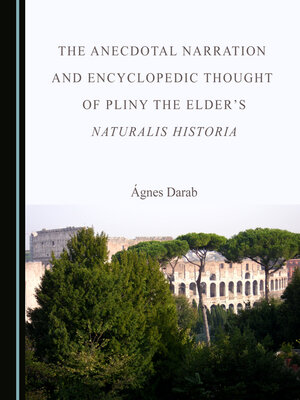The Anecdotal Narration and Encyclopedic Thought of Pliny the Elder's Naturalis Historia
ebook
By Ágnes Darab

Sign up to save your library
With an OverDrive account, you can save your favorite libraries for at-a-glance information about availability. Find out more about OverDrive accounts.
Find this title in Libby, the library reading app by OverDrive.



Search for a digital library with this title
Title found at these libraries:
| Library Name | Distance |
|---|---|
| Loading... |
Pliny the Elder’s Naturalis Historia, with its varied content, enables and expects the reader to employ a complex interpretative technique. One aspect of Pliny’s diction is that he often interrupts the discussions of topics with digressions and begins to address something that seemingly has nothing to do with the subject. The hypothesis suggested by this book is that these digressions that occur in different places and in great number throughout the text of Naturalis Historia should not be regarded as mistakes fragmenting the encyclopedia’s structure.Most of these digressions are anecdotes. Researching the aetiological anecdotes, and those about the life of animals, famous persons from political or intellectual life, and the most important Greek painters and sculptors requires the application of different perspectives. When we approach anecdotes from the perspective of narrative techniques, the role of the stories as exempla becomes clearer, and its further aspects can be spotted. This book also draws attention to Pliny the writer, an aspect of the text that has been contested until very recently.







